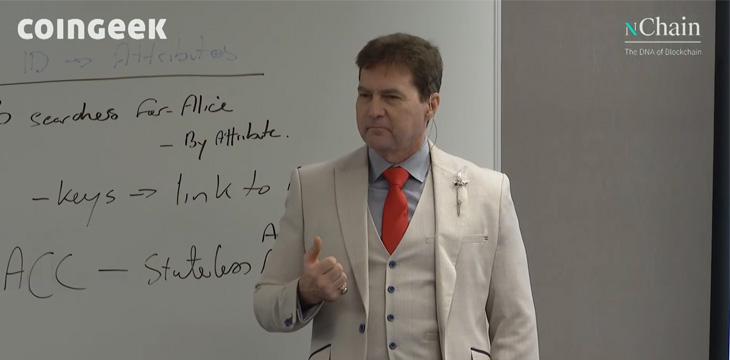|
Getting your Trinity Audio player ready...
|
In the first session of the second day of The Bitcoin Masterclasses in Slovenia, Dr. Craig Wright talked about Distributed Hash Tables, how they can help create robust, truly decentralized networks, and how the type of networks we’ve been talking about can wrest back control from the Silicon Valley giants and return it to the individual.
Distributed Hash Tables
Dr. Wright begins the morning session with the concept of Distributed Hash Tables (DHTs). They serve as a method for distributing information across many servers and are usually linked to corporations and individuals running different services.
Dr. Wright then asks the attendees if any of them have worked on DHTs. One attendee answers that he has worked on Hadoop. He elaborates that this is a standard key-value style database spread across multiple nodes. You push information to it, and it’s distributed based on the hash. Dr. Wright picks up on this point to emphasize that decentralized doesn’t mean what people think it does; in a sense, he uses the word, DHTs are decentralized in that they are stored on multiple nodes.
Robust, decentralized networks
Then comes a hypothetical question; what happens if you’re in one of the multicast groups discussed earlier and want to get all of the information pushed to you, but you aren’t online 24/7?
Straightforwardly, you won’t get it. You can ask another group member to update you or set up machines to stay online. Dr. Wright likens this to setting up FNet or IRC programs to continue receiving information when you’re offline.
He emphasizes that this is what a robust, decentralized network means; if you have one node and it goes offline, that’s not good, but if you have two or more, the chances of losing information become much lower. More nodes are better, but there are diminishing returns after the first few.
Imagining an alternative to Twitter, Dr. Wright rightly says we don’t want to have to call on our group to give us all of the information we missed while we were gone. Rather than do this, we have our listener responding and saying we’re away but requesting the information be sent to it anyway. We then connect to this machine with our phone when we’re online and pull the information.
Such bots would be very cheap and inexpensive to run. They’ll be run on micropayments. Furthermore, they can be encrypted so that the information in them is accessible only with your key.
“Now we’re getting to the point where we have a better, more robust version of Twitter,” Dr. Wright says.
”How many servers are we using on Amazon? How many on Google or Bing?” Dr. Wright asks. The answer, of course, is none, and that’s why none of them will talk about this sort of thing. They don’t want users doing any of this because they want to have control over all data. He points out that Twitter or Google (NASDAQ: GOOGL) could join open groups and suck all the information anyway, but it’s much more difficult when there are so many potential groups.
“Do you see how this becomes a different model?” Dr. Wright asks rhetorically, smiling as he describes how Silicon Valley firms like Meta and Twitter won’t be able to collect data and snoop on us. This is what he meant by decentralization when he spoke as Satoshi Nakamoto.
Accessing distributed data, fostering competition, and restoring privacy
With distributed systems like the ones Dr. Wright outlines, there are solutions to many of the problems big Silicon Valley companies created today. He says that having standards for data access and accessing them in multiple ways can improve things.
For example, people can make competing apps that can access the data stored on the blockchain, allowing users to migrate from one to another while still having access to the data provided they have the keys to unlock it (like using a seed phrase to switch between wallets).
This competition between app developers will foster innovation, something Silicon Valley hasn’t seen for a long time because a few monopolies literally own the networks they operate on. With DHTs, we have a new way of distributing and holding information in a truly decentralized way.
Dr. Wright then delves into how two parties can use peer-to-peer networks such as the one he describes to communicate securely and even pseudonymously. Once again, this cuts out the data harvesters who want access to our communications for various agendas. “Privacy means giving back to the individual,” Dr. Wright says, hammering his point home.
Circling back to his earlier talks in the London Masterclass, Dr. Wright outlines how we can share certain information with interested parties without handing over unnecessary information. This, too, will restore a level of privacy the world has not seen in a long time.
Watch: The Bitcoin Masterclasses Identity & Privacy

 02-15-2026
02-15-2026 




